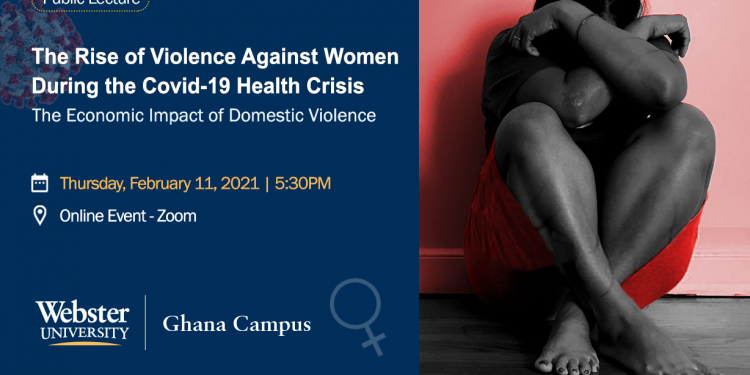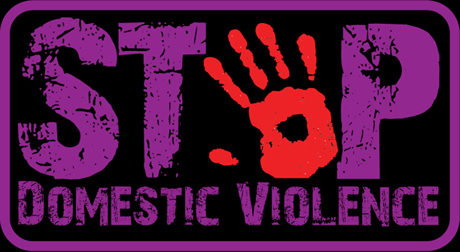“Sexual, racial, gender violence and other forms of discrimination and violence in a culture cannot be eliminated without changing culture.” – Charlotte Bunch
Culture is dynamic and as such, as society evolves, so must culture. Cultural orientation; such as “the woman’s place is the kitchen, man is supposed to take care of the wife and children” among others, have been identified as major factors contributing to Gender Based Violence (GBV) in Ghana.
GBV refers to harmful acts, physically or emotionally, directed at an individual based on their gender. In some cases, culture is used to justify GBV through our traditional beliefs and practices.
In some parts of Ghana, a man coming from a farm is seen holding just a cutlass, whilst the wife will be carrying foodstuff and firewood on her head with a child at her back and holding the hand of another. This is the typical life in the countryside.
Even though the action promotes gender based violence, there is nothing wrong with it traditionally.
Other practices such as Female Genital Mutilation among other unhealthy cultural practices are classified as norms but cause gender based violence and must be abolished.
Women especially become susceptible to gender based violence due to our social structure, which includes their roles.
Therefore, abolishing Negative Cultural Practices will enhance the fight against gender based violence.
“One in three women may suffer from abuse and violence in her lifetime. This is an appalling human rights violation, yet it remains one of the invisible and under-recognized pandemics of our time”, Nicole Kidman
“Statistics in Ghana indicate that 33–37 % of women have ever experienced domestic violence in the form of intimate partner violence in their relationship.” BMC Public Health ( Ebenezer S. Owusu Adjah and Isaac Agbemafle on Determinants of domestic violence against women in Ghana).
According to the Central Regional Coordinator for the Domestic Violence and Victim Support Unit (DOVVSU), Chief Superintendent of Police, George Appiah-Sakyi, “the fact that gender roles have been defined by our culture makes it difficult to achieve gender parity”.
“If one person does not perform a certain role, then the other party becomes offended. The man thinks that he has given housekeeping money and that the woman is supposed to cook, wash and do all the house chores and if it doesn’t happen like anticipated, then domestic violence arises”.
He called for the need to change “our cultural orientation and the aspect of behaviour that does not ensure gender parity”.
“Over the past 10 years total reported cases of domestic violence in the Central Region of Ghana are in the threshold of 3000. It however dropped to 1700 in 2021. Assault and neglect of parental duty chalked half of all recorded cases. Sexual violence cases however stand at 170 annually”.
Speaking to Citi News in Cape Coast, Chief Superintendent Appiah-Sakyi maintained “gender inequity fuels violence and this is as a result of our orientation and cultural practices”.
He reveals that the trend in recent times is that when women report domestic violence cases associated with their men partners to DOVVSU, the men threaten to end their marriage.
“Men misunderstand the work of the DOVVSU and become agitated, thereby threatening to divorce their wives when the women report them to DOVVSU on domestic violence-related issues”.
The phenomenon, according to him is a major challenge to his outfit, stating that DOVVSU has no intention to separate or end marriages but rather to protect them.
In Ghanaian culture, the man is supposed to be the Head of the family and the wife must be submissive to the husband. As a result, it becomes strange to some individuals, when a woman reports her husband’s misdemeanour to the police. It is a known fact that many marriages end up on rocks because the woman reported the husband to the police.
“When cases are reported against the perpetrators, they think that their partners meant bad for them. Is the police a bad institution in the resolution of conflict”? Chief Superintendent Appiah-Sakyi questioned.
According to a Daily Graphic report of 13th December 2021, the Director-General of the Criminal Investigations Department (CID), Isaac Ken Yeboah, was reported to have revealed that about 1,500 cases of violence against women were reported to law enforcement agencies annually.
In the year 2020, 16586 cases of domestic violence were reported, with 913 cases being emotional abuse, said reports.
Chief Superintendent Appiah-Sakyi admonished all to be law-abiding and shun unhealthy cultural beliefs and practices, such as “the notion that women are subservient to men and the assertions that you can use force to get what you want” among other harmful practices that do not help people’s well-being.
Adding her voice to the matter, the Queen Mother of Mankessim Traditional Area, Nana Ama Amissah reiterated the need to abolish some outmoded cultural practices, especially the ones that bring about gender-based violence.
Nana Ama Amissah told Citi News that “in the past, girls were made to sell to cater for their brothers’ education. The boys became literate and handled higher positions in society, whilst the girls were relegated.
As a result, her outfit launched a campaign dubbed; “Beyond The Kitchen” which sought to educate stakeholders on the need to attach importance to girls education and indicated that women can aspire for every profession in society.
She called on women to be affirmative, independent and stand for their rights, saying, “don’t be discouraged, if a man threatens to divorce you because you have reported them to DOVVSU”.
—–
This article was produced with support from the Africa Women’s Journalism Project (AWJP) in partnership with the International Center for Journalists (ICFJ) and through the support of the Ford Foundation.










